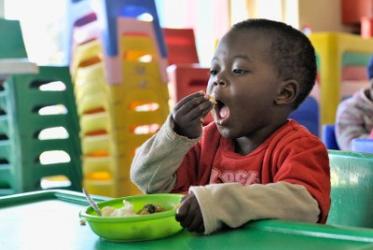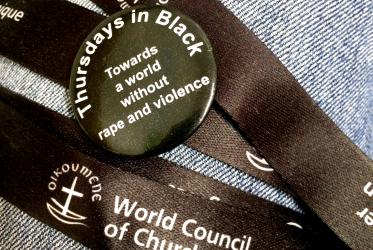Displaying 21 - 40 of 56
Worrying food shortages compel faith action
19 October 2018
In Kenya, issues of young people come to the forefront
19 October 2018
Theologinnen sprechen über Migration, Gender und Religion
08 November 2017
“God has brought ways of defeating HIV”
31 October 2017
UN discussion focuses on women, HIV and property rights
21 March 2017










